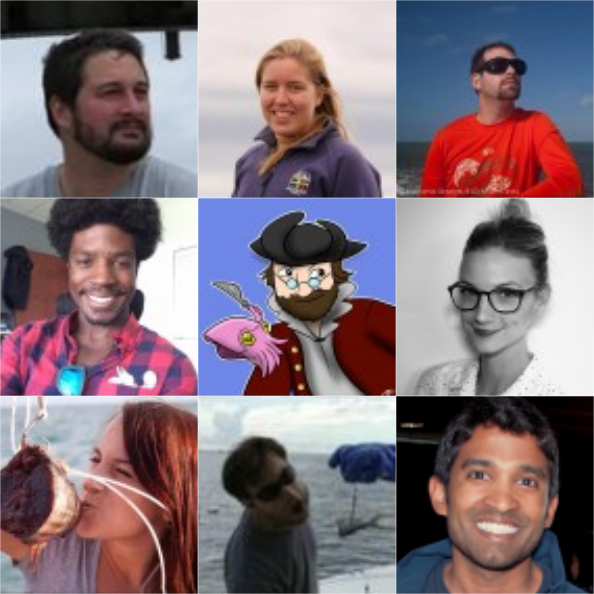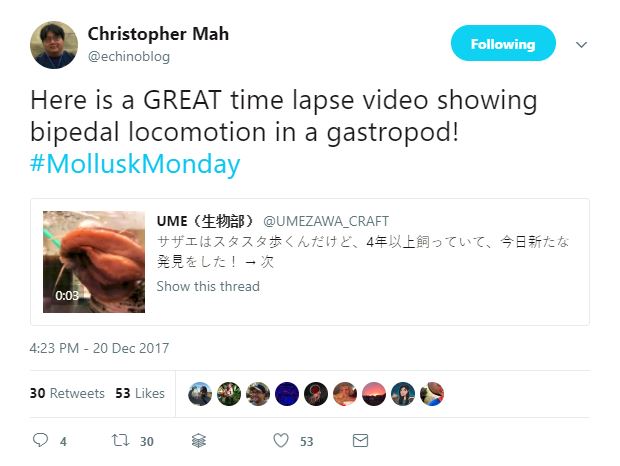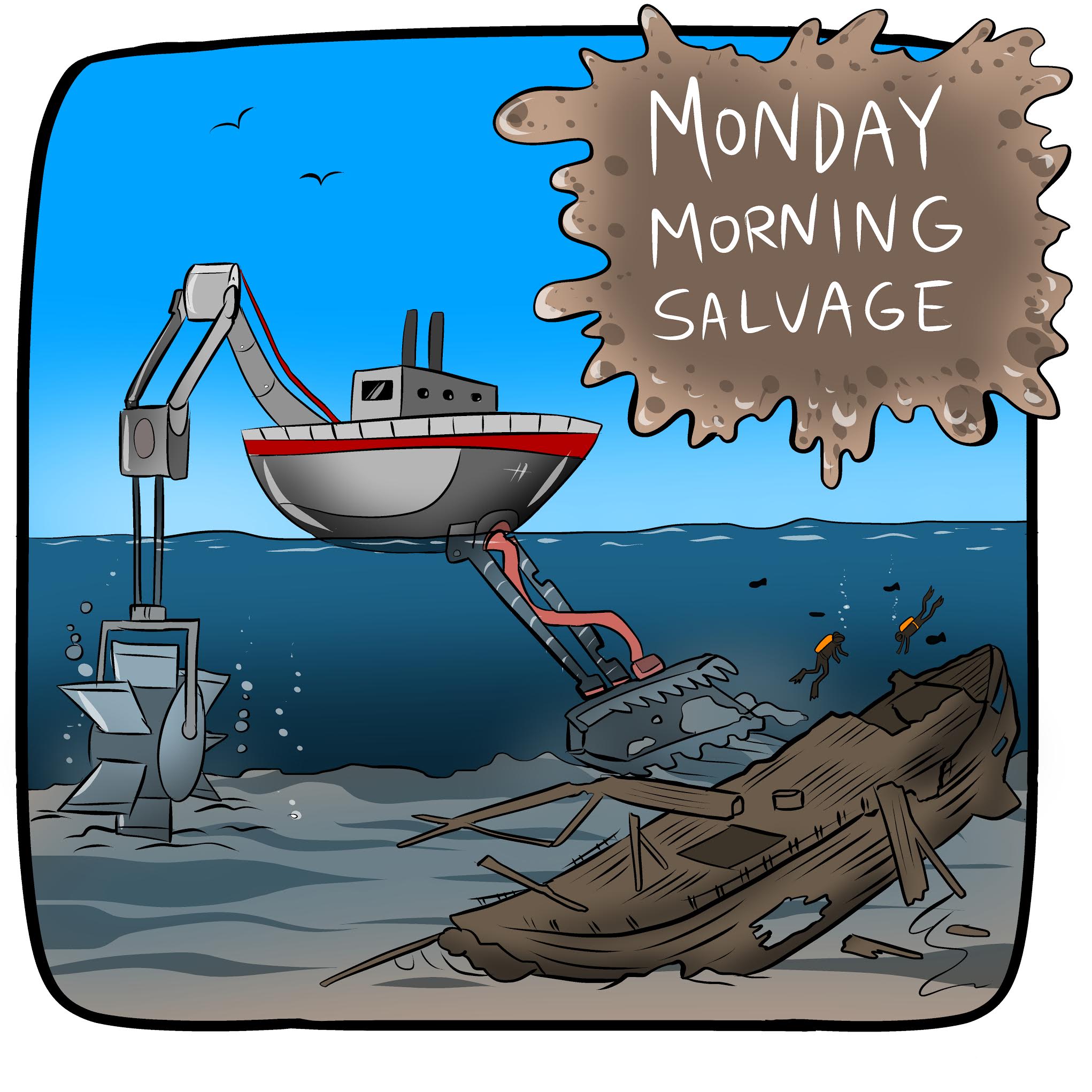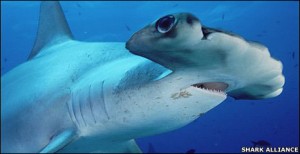Happy Holidays from the Southern Fried Science Team!

Fog Horn (A Call to Action)
- The Saipan Blog’s Angelo Villagomez put together a list of extraordinary Indigenous Pacific Conservationists to Follow on Twitter in 2018. Go. Follow them. Learn what’s really happening in Pacific Conservation.
Flotsam (what we’re obsessed with right now)
- Do-it-yourself science is taking off. A growing movement seeks to make the tools of science available to everyone (including you). I love that The Economist now has a “Punk Science” heading.
- Palau now requires all tourists to sign an environmental pledge when they enter the country. All flights in now feature this delightful short film.
https://www.youtube.com/watch?v=KhuY8eNLzBM
- Arlo Guthrie was right! Cool short video of bipedal “walking” in gastropods. Clamzo boys, Clamzo!







